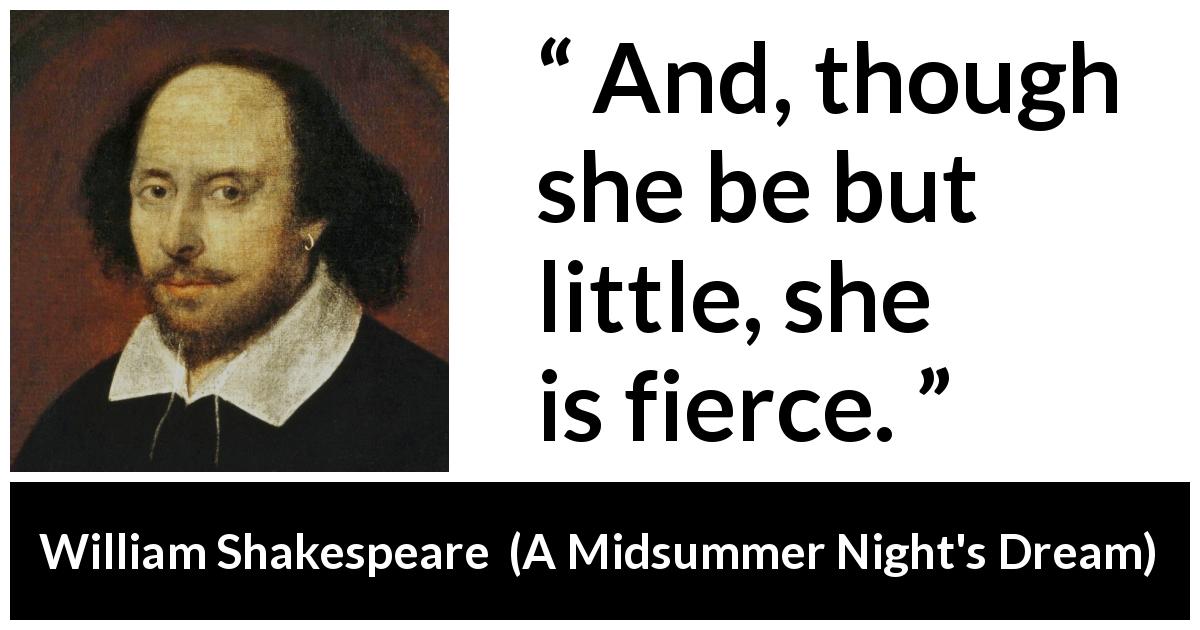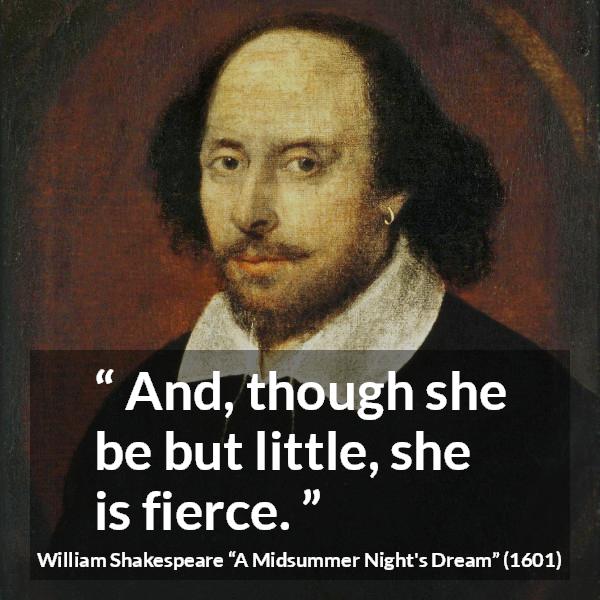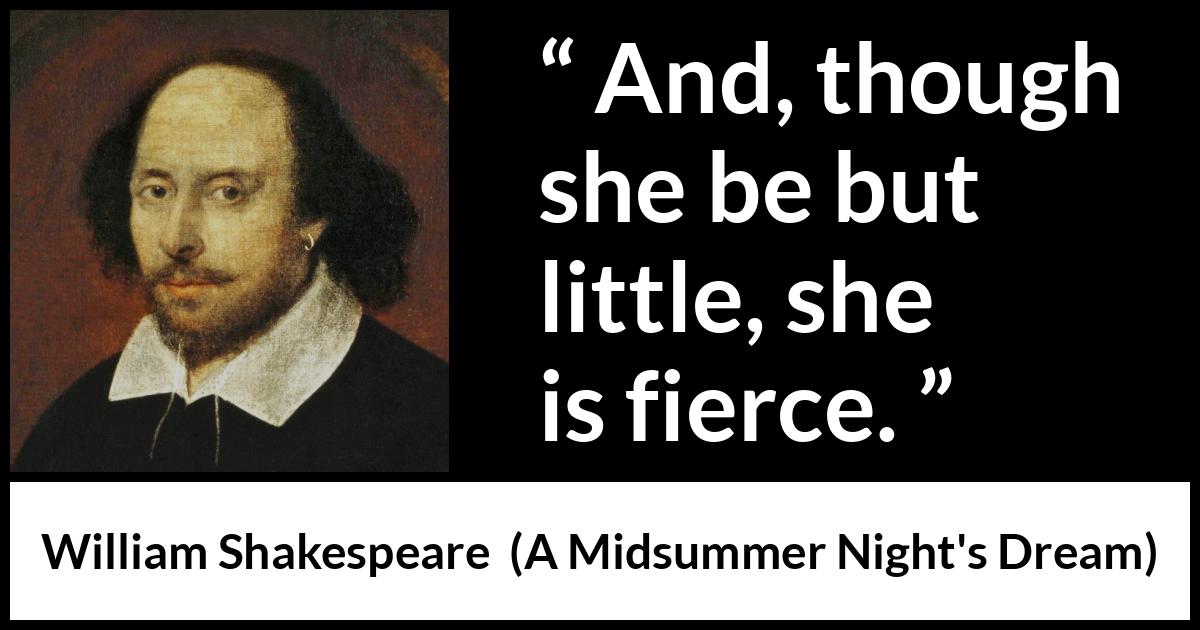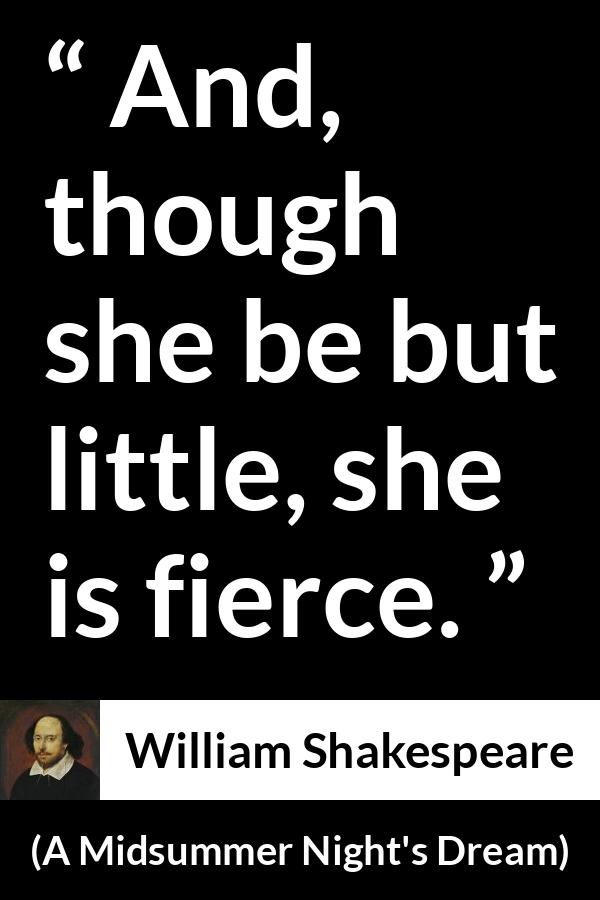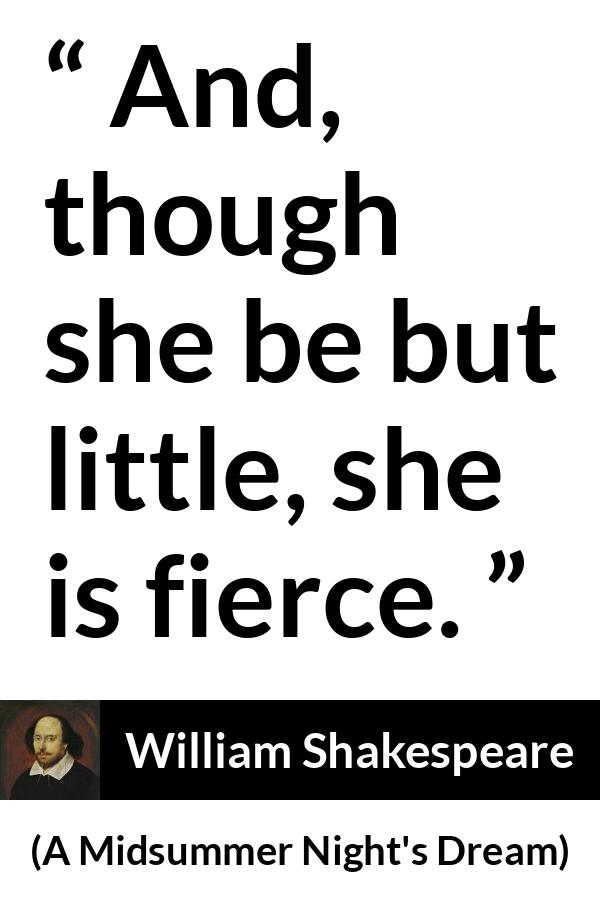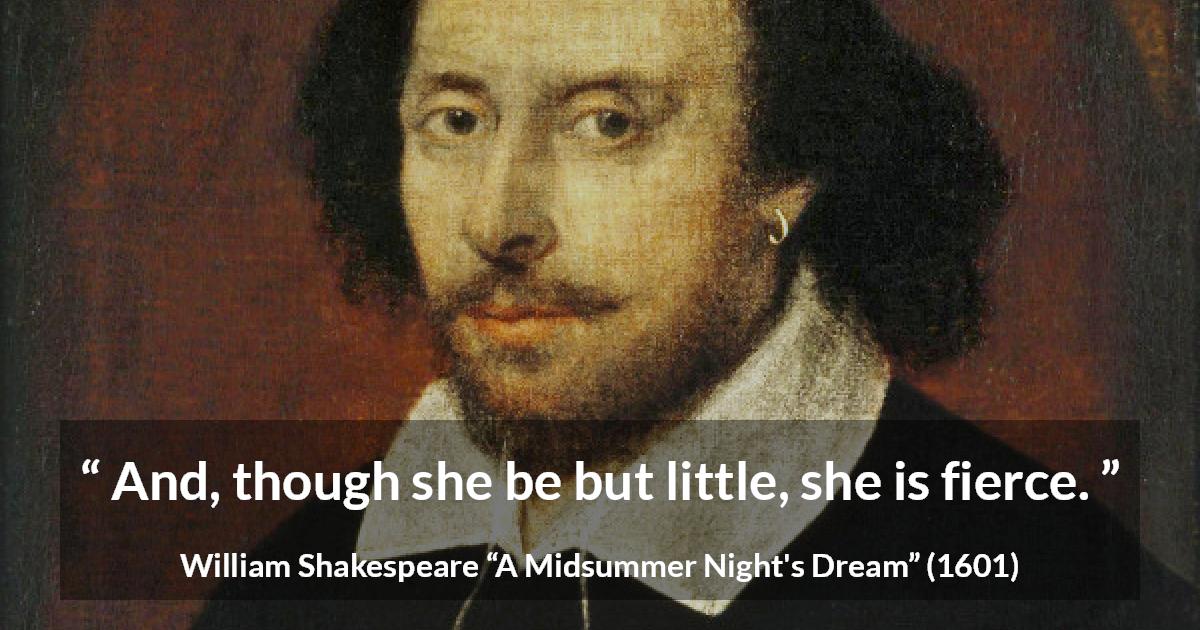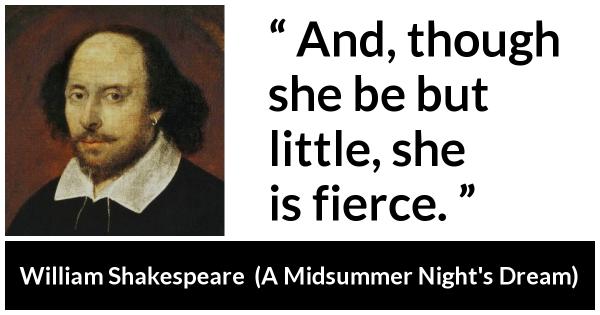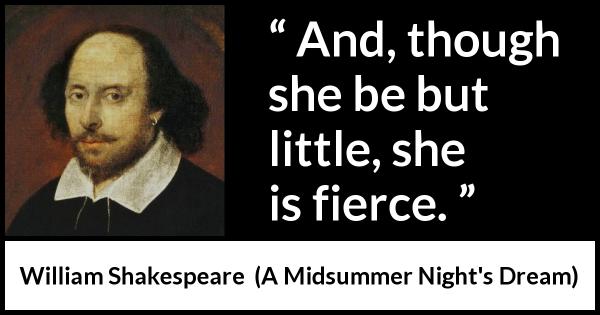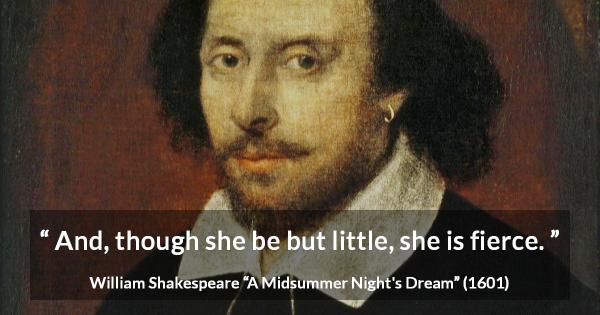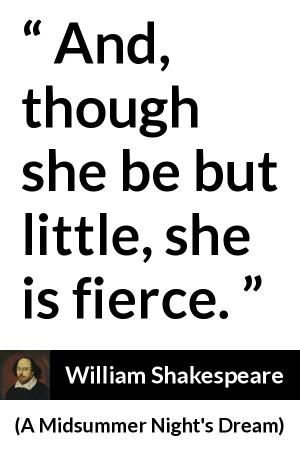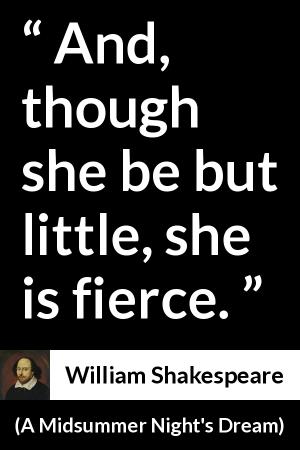“ And, though she be but little, she is fierce. ”
William Shakespeare, A Midsummer Night's Dream (1601). copy citation
| Author | William Shakespeare |
|---|---|
| Source | A Midsummer Night's Dream |
| Topic | ferocity littleness |
| Date | 1601 |
| Language | English |
| Reference | A Midsummer Night's Dream, Act III, Scene 2 |
| Note | Written between 1590 and 1597 Helena line |
| Weblink | http://www.gutenberg.org/files/1514/1514-h/1514-h.htm |
Context
“Be not afraid; she shall not harm thee, Helena.
DEMETRIUS. No, sir, she shall not, though you take her part.
Helena. O, when she's angry, she is keen and shrewd. She was a vixen when she went to school, And though she be but little, she is fierce.
HERMIA. Little again! Nothing but low and little?
Why will you suffer her to flout me thus? Let me come to her.
LYSANDER. Get you gone, you dwarf;” source
DEMETRIUS. No, sir, she shall not, though you take her part.
Helena. O, when she's angry, she is keen and shrewd. She was a vixen when she went to school, And though she be but little, she is fierce.
HERMIA. Little again! Nothing but low and little?
Why will you suffer her to flout me thus? Let me come to her.
LYSANDER. Get you gone, you dwarf;” source
Meaning and analysis
Kwize Master
As Helena and Hermia are fighting, Helena concedes that despite her small size, Hermia shows a fierce temperament. This remark is clumsy, because if it can be interpreted as a compliment, Hermia takes it very badly by considering that Helena mocks her height and therefore insults her.
useful
useless
